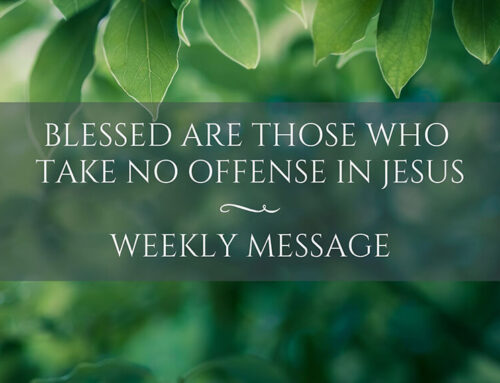The Oscar-winning film Babette’s Feast tells the story of two elderly sisters, Martine and Philippa, who have lived their lives in a remote village on the Jutland Peninsula in 19th Century Denmark. Long ago their father founded the village church, which, over the years, has lost its vitality: many members died, some had moved away, and those who remained were caught up in bickering and petty disagreements.
One day a stranger arrived at the sisters’ door, Babette. She had a letter of introduction from an opera star who once courted Philippa. Babette was a refugee from political violence in her native Paris, the letter explained, and would make a superb housekeeper. The sisters couldn’t afford her services, but Babette agreed to work for free; every day for the next 14 years Babette prepared the bland meals that the sisters wanted and which suited their bland lives. Babette’s only connection to her old life was a lottery ticket a friend sent her every year.
One year, Babette’s lottery ticket won! With her winnings, she offered to cook the sisters and the members of their church a real French meal, a feast! So the preparations began: Babette ordered ingredients from Paris. As the delicacies began to arrive, the sisters started to worry Babette’s meal will be so lavish at to be sinful.
Just a week before his death, Jesus was at a feast in Bethany, at the home of his friends Martha, Mary, and Lazarus. Jesus had recently raised Lazarus from death, so the family had much to celebrate. Death and evil were hovering over Jesus as he reclined at table with his friends, though; the chief priest and the scribes had already decided to kill him.
While at table, Mary knelt at Jesus’ feet with a jar of nard, precious and expensive perfume, with which she anointed Jesus’ feet. In today’s dollars that perfume would be worth more than $30,000, so it was an extravagant gift. When she’s finished anointing Jesus’ feet, she dried them with her hair, a provocative gesture that would raise many an eyebrow. People in love make signs of love; they don’t hold back. Mary held nothing back. She didn’t care what it costs, she didn’t care what people thought. She loved Jesus selflessly and with a love both free and freeing.
Seeing this Judas complained: “this [nard] could have been sold and the money used to help the poor.” Forgetting, for a moment, who Judas is, do you think he has a point? Jesus told Judas, “She has kept this for the day of my burial.” Then Jesus says, “the poor you have with you always, but you do not always have me.” Jesus is alluding to Deuteronomy 15:11. “There will always be poor in your land so open your hands to them. Be generous to the poor and kind to those who have nothing.”
When Judas spoke about the poor, he’s speaking abstractly, and abstractions only exist in our minds. There really are no “poor,” there are only individual poor people. We shouldn’t be like Charlie Brown’s little friend Lucy Van Pelt, who remarked famously: “I love mankind; it’s people I can’t stand.” Jesus doesn’t want us to be generous in theory, he wants us to be generous in fact.
The story the banquet in Bethany challenges us to radical generosity; it asks us to hold nothing back in loving Jesus, and it cautions that we will not always have him with us so we must seize the opportunity to lavish our love on him when it arises.
Jesus is with us in his little ones: the poor, the hungry, the homeless, and the lonely. He comes to us in prisoners, in the broken and the broken-hearted. We will meet Jesus in them every day, perhaps only for a fleeting moment: they’ll be giving us coffee at Dunkin’ Donuts or bagging our groceries at Shop Rite. How will we use those opportunities to serve the Lord and show our love?
Babette’s feast rivaled the best fare in Europe, but more importantly, because of Babette’s lavish expression of love, the bodies and their spirits of her guests were lifted up. Old anger and animosity disappeared; ancient loves were rekindled; new life flowed into this tired, old church. At the end of the night, the guests all held hands and they sang the doxology, “Praise God from who all blessings love.”
Finally, toward the end of the film, we discover that Babette, before she fled Paris, had been the head chef at the renowned Cafe d’Anglais, she was one of the most celebrated chefs in the world. Had she spent her winnings on herself, Babette could have gone back to her old life. Instead, she chose to give all she had for this banquet of love.
Was Babette foolish to spend so lavishly on a feast? Was Mary foolish for spending all she had on perfume to anoint her savior before he died? What would it be like if we could be foolish like they were?
At the conclusion of the film, one of the elderly sisters, realizing Babette has given everything she had, tearfully says to her: “now you will be poor the rest of your life,” to which Babette replies: “An artist is never poor.” Might we not more accurately say: “a Christian is never poor.”
The other sister tells Babette, “In paradise you will be the great artist God meant you to be. Oh, how you will enchant the angels.”
How can we enchant the angels?
by Rev. Richard Hasselbach, Ph.D.





